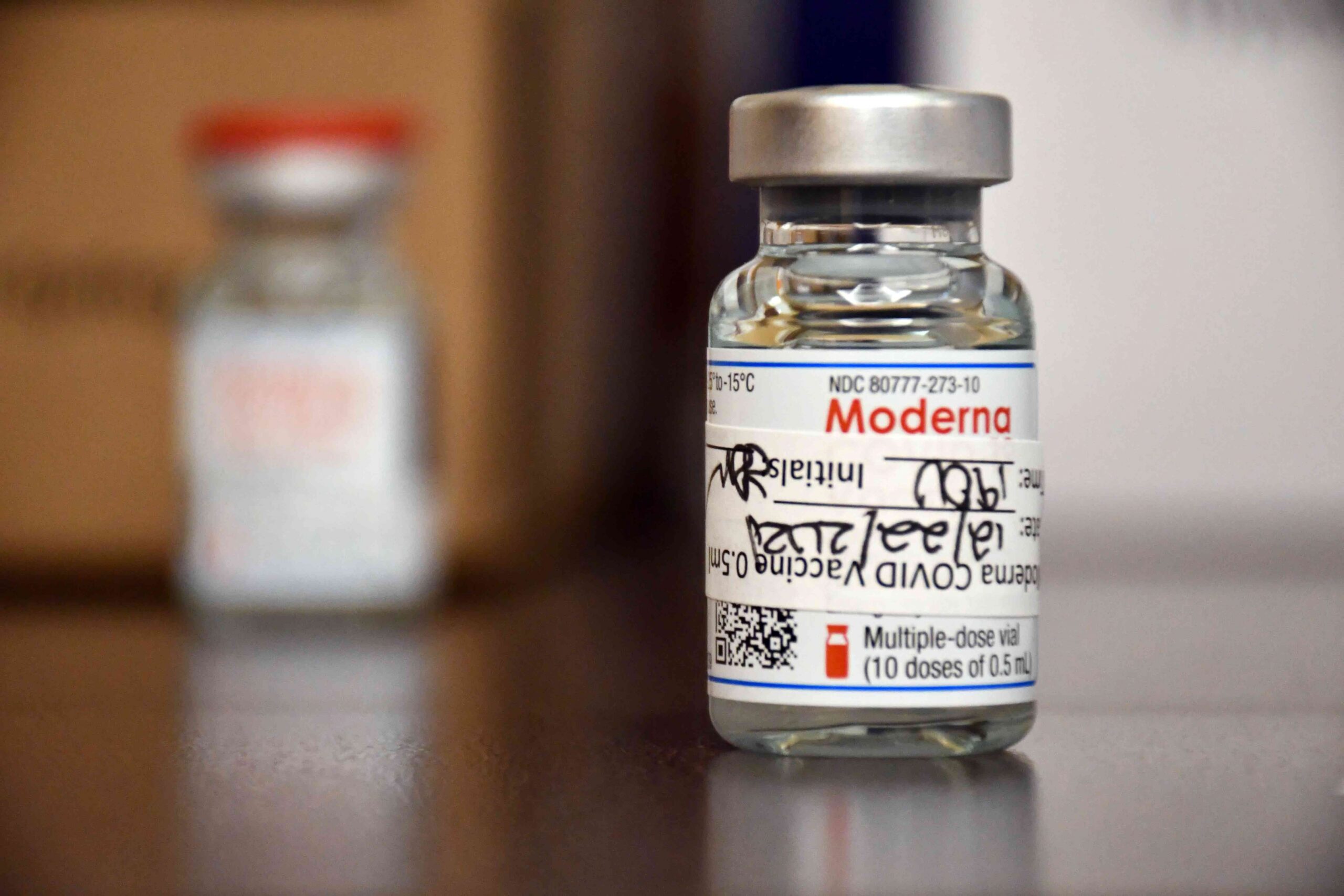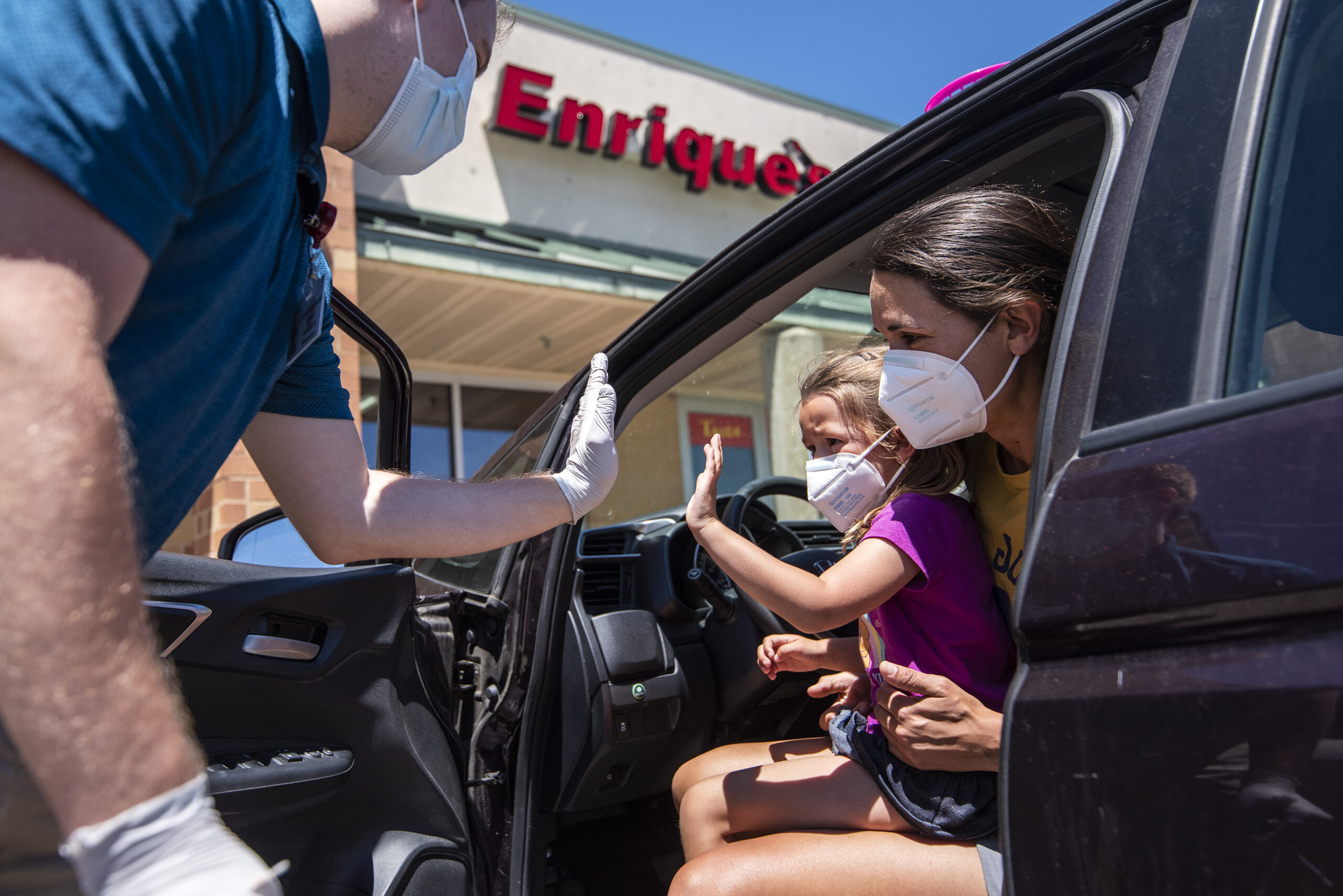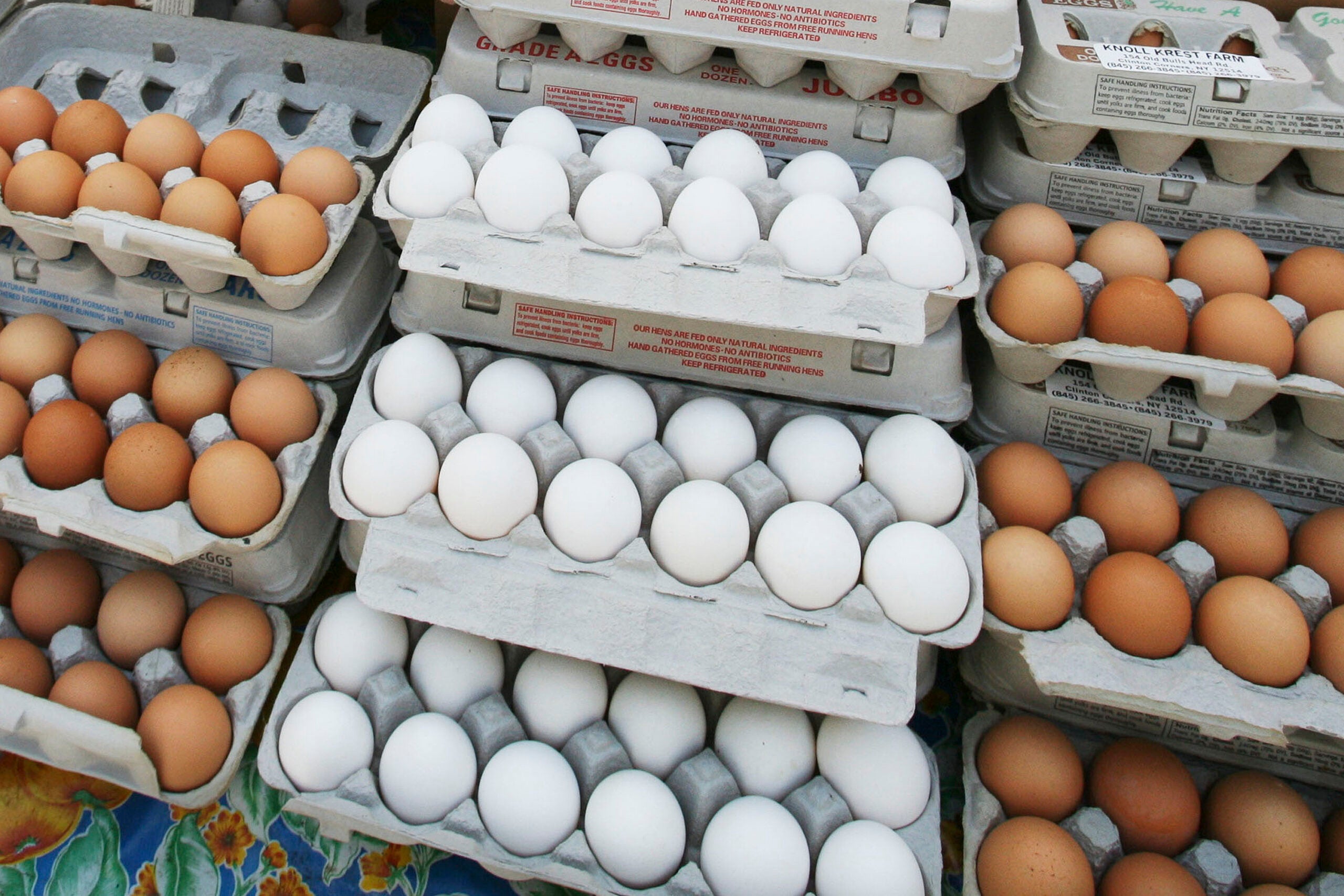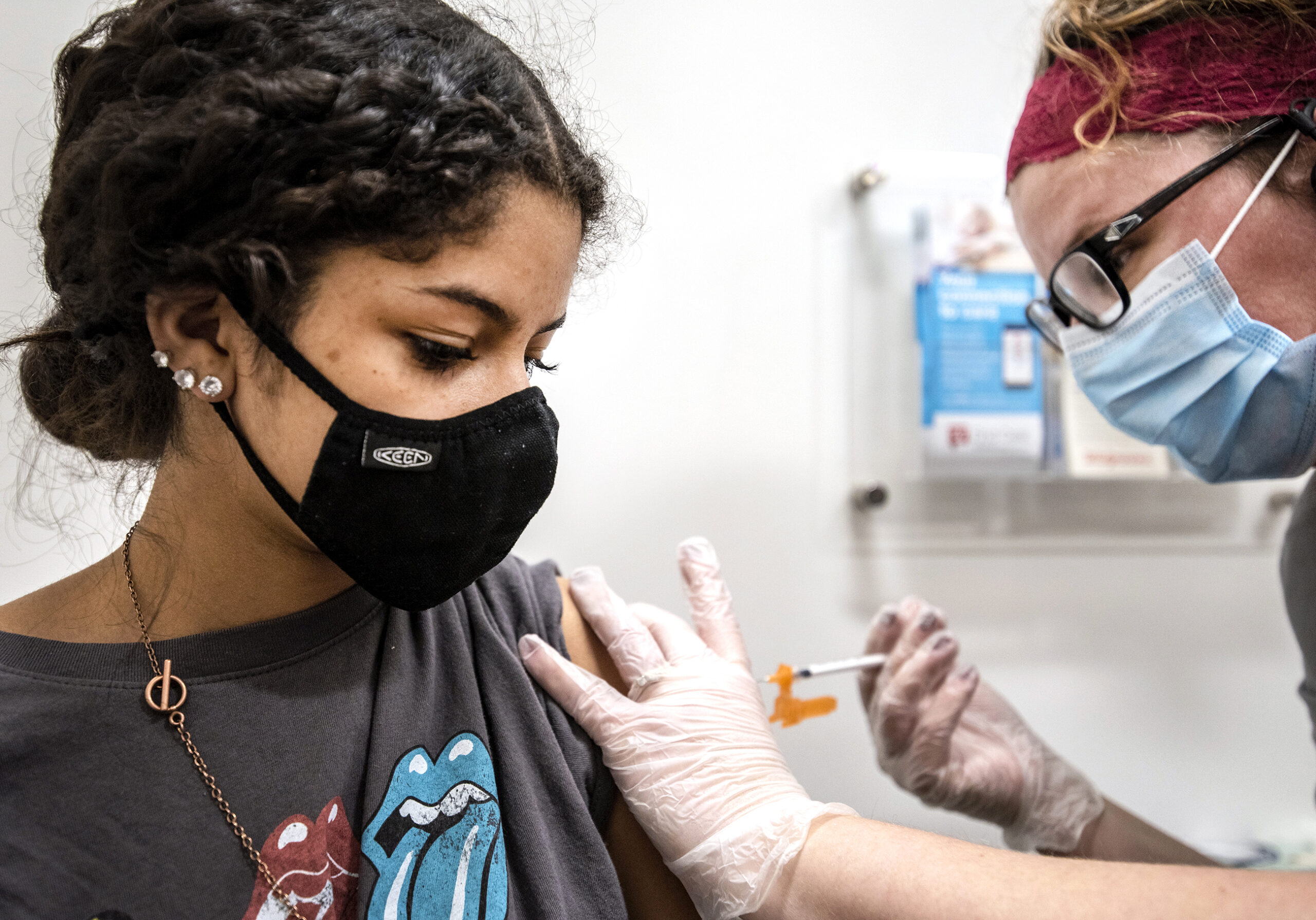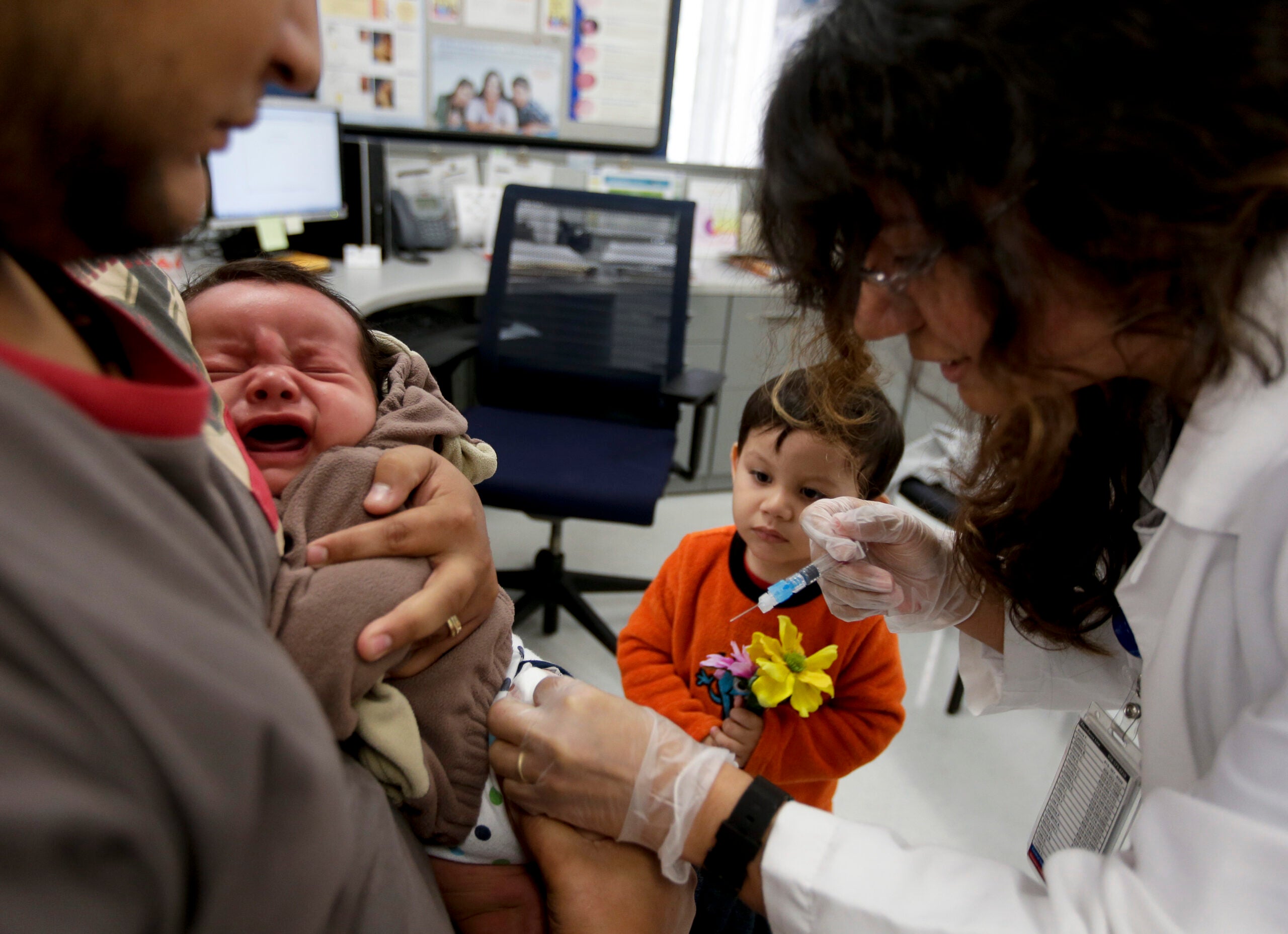Some older Wisconsin residents may have been able to get the COVID-19 vaccine sooner from neighboring states through their provider.
The pace of the vaccine rollout and who is eligible to receive shots has varied widely among states, and Wisconsin’s rollout has lagged behind others in the Midwest. In neighboring Michigan, the state began giving out doses to people 65 and older on Jan. 11 — two weeks earlier than Wisconsin.
In the first week of January, Wausau-based health system Aspirus included Iron County residents as it began taking appointments for those 65 and older at its clinic across the border in Michigan, according to registered nurse Zona Wick, public information officer for Iron County.
Stay informed on the latest news
Sign up for WPR’s email newsletter.
“They’re being very good with working with us,” said Wick.
Clinics that serve patients in Wisconsin and across state lines are navigating different sets of processes and guidelines as they administer the COVID-19 vaccine, including Aspirus. The health system, which serves around 50 clinics in Michigan and Wisconsin, began giving shots about a week earlier at sites in Michigan, according to senior vice president Jeff Wicklander.
“The vaccine stays within the state that it was allocated to,” said Wicklander. “But, if we have individuals who live in Wisconsin, but received care in Michigan, we vaccinate those individuals. Their care is in Michigan, and we vaccinate them as such.”
As of last week, Aspirus has vaccinated around 1,900 people in Michigan’s Upper Peninsula that are 65 and older or essential workers. Wicklander didn’t have specific figures on how many Wisconsin residents had been vaccinated at Michigan clinics. But, he assumed a “fairly small” number had received the vaccine due to limited supply and eligibility.
Earlier in January, a review of state’s prioritization and distribution timelines for the vaccine found access to shots in the initial rollout may depend on where people live as states diverge from Centers for Disease Control and Prevention (CDC) guidance and each other, according to the Kaiser Family Foundation.
The Lake Superior Community Health Center, which has five clinics in Wisconsin and Minnesota, is navigating the differences in reporting requirements and vaccination guidelines between states as they administer doses in Duluth and Superior. That creates more work and layers of bureaucracy for center staff, according to Jessie Peterson, interim CEO and chief operating officer.
She said they’re honoring what states call the closed POD model for vaccination, meaning they’re allowed to distribute doses to those 65 and older who are established patients.
“We have very clear patient lists on both sides of the bridge (separating Duluth and Superior), but that is a blurry line for us,” said Peterson. “And our ultimate commitment is to our patients and getting them vaccine.”
To her knowledge, they haven’t vaccinated any older Wisconsin residents at Minnesota clinics. Ryan Praleikas, the center’s medical clinic manager, said they’ve been scheduling vaccination separately for patients 65 and older in Wisconsin and Minnesota given varying state guidelines. Minnesota began accepting vaccine appointments for those 65 and older about a week before Wisconsin. But, he added it’s possible they would administer the vaccine to a Wisconsin patient in Minnesota if it meant they could avoid wasting any doses.
State Deputy Health Secretary Julie Willems Van Dijk said in a media briefing Friday that the state recently expanded eligibility to include residents 65 and older in order to save lives. She noted 87 percent of people who have died from COVID-19 in Wisconsin fall within that age group.
While Wisconsin’s vaccine rollout has lagged behind neighboring states, she said health officials are increasing the number of doses administered.
“We have had several record days in a row. We gave over 45,000 doses of vaccine in this state (Thursday),” said Willems Van Dijk. “And so our vaccinators from public health, from health systems, from pharmacies are actively getting shots in arms and protecting lives.”
As of Friday, the state had administered 476,855 doses of the vaccine. Willems Van Dijk said they’re receiving about 70,000 initial doses of the vaccine from the federal government each week.
President Joe Biden has pledged to increase vaccination and set a goal of 100 million shots in 100 days. He also announced this week that the U.S. was ramping up allocations over the next several weeks in response to widespread frustration over vaccine shortages.
Wisconsin Public Radio, © Copyright 2024, Board of Regents of the University of Wisconsin System and Wisconsin Educational Communications Board.
